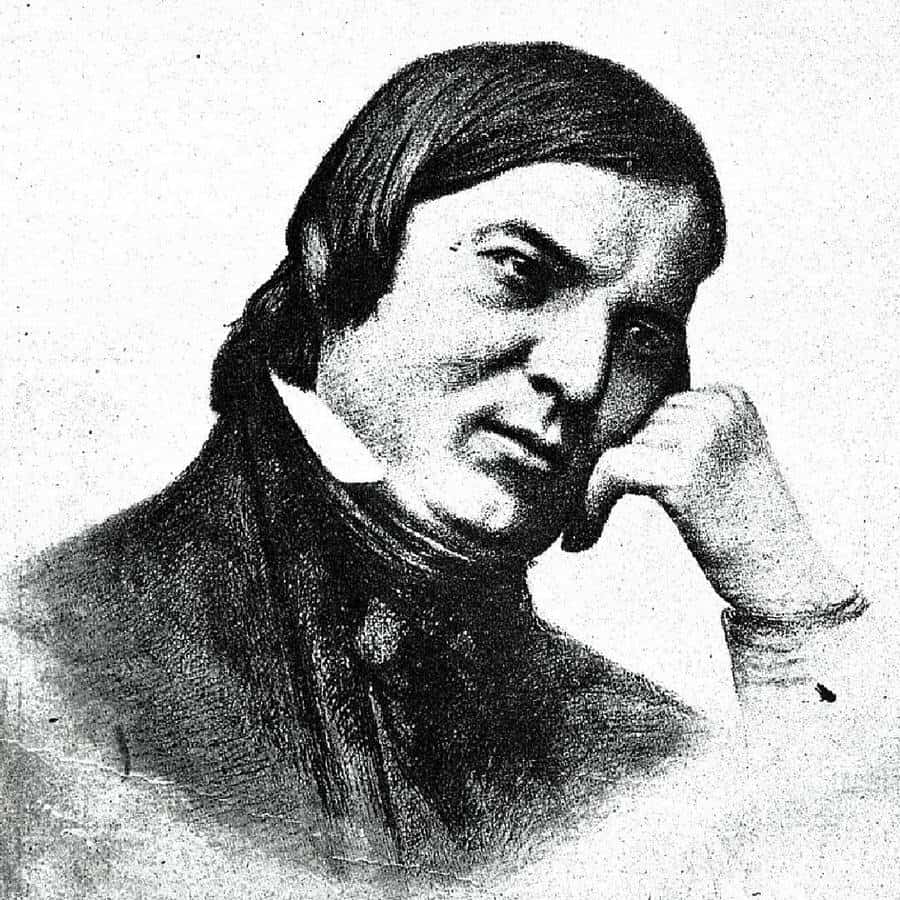Robert Schumann
GERMAN COMPOSER
Personal Life
Born in the town of Zwickau in Central Germany, Schumann was the last child of his parents, August Schumann and Johanna Schnabel. As a young boy, Schumann began to compose before turning seven, but his childhood was spent more in terms of literature than music. This is likely due to the influence of his father, who worked as a bookseller, publisher, and novelist.
Schumann started learning music with Johann Gottfried Kuntzsch, who was a teacher at the local high school. Eventually, the boy would develop a massive passion for music and would go on to compose his own material even without the aid of his teacher. Despite often disregarding the basic principles of composition, he was able to create pieces of considerable complexity for his age.
Schumann’s interest in music was further sparked after attending a performance of Ignaz Moscheles in Karlsbad. He would also later be interested in the works of classical masters such as Beethoven, Schubert, and Mendelssohn. In 1828, after Schumann left high school, he went on to study law at the University of Leipzig, despite his personal objections. But while there, he still worked on his music: focusing on improvisation and composition, among others.
Career
Schumann’s style of fusing literary concepts with music, otherwise known as program music, might’ve started when he wrote Papillons, Op. 2, as a musical portrayal of the events in the novel Flegeljahre. Further on, In the winter of 1832, Schumann would go home to Zwickau, where he played a part of his Symphony in G minor. While the symphony itself wouldn’t be published during Schumann’s lifetime, it will get played and recorded long after his death.
In 1833, Schumann’s brother Julius, along with his sister-in-law Rosalie, would die of cholera. He was very close to the couple, and as a result, he went into a deep depression. But a year later, Schumann would recover to write a new piece: Die Neue Zeitschrift für Musik (New Journal for Music), which was first published on the 3rd of April 1834.
Aside from his musical work, he would also seek jobs in Leipzig and Vienna, to no avail. But eventually, he got offered the post of municipal director of music in a school at Düsseldorf, which he readily accepted. Things went well enough the first time, as he was able to compose his Cello Concerto in A Minor and Symphony No. 3 in E-flat Major. He also drastically rewrote an old work of his, the 10-year-old Symphony in D Minor. He was also active in the concert scene, conducting eight, though being a conductor was not his forte. He would lose his position as music director at Düsseldorf in 1853.
Schumann would suffer from deteriorating physical and mental health, leading to his suicide attempt on the 27th of February, 1854. He would be taken to an insane asylum at his request, where he died on the 29th of July, 1856.

Did You Know?
Nobody knew what exactly caused Schumann’s health issues, but given several reported symptoms, it is assumed that he died from syphilis which he might’ve acquired as a young student.

Robert Schumann Recordings
Quick Guide...
Music Lessons



